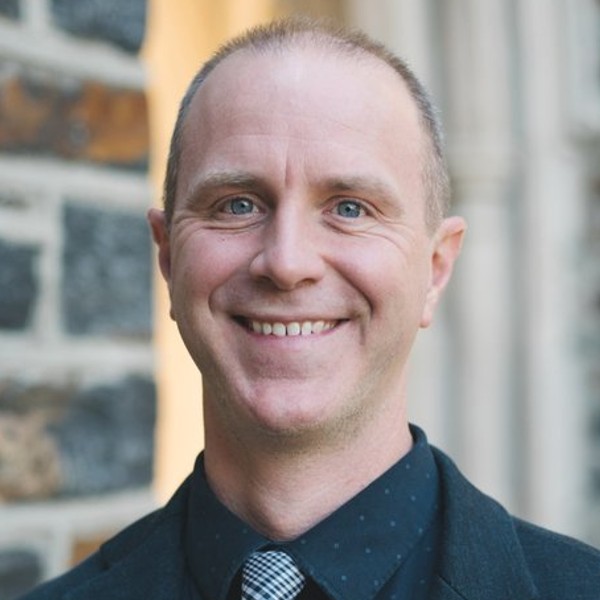On November 20, a group of Evangelical, Catholic, and Eastern Orthodox leaders released the Manhattan Declaration, a “call of Christian conscience” focused on three central concerns: human life, heterosexual marriage, and religious liberty. Responding to seismic changes in American culture, the document outlined a firm stance against abortion and gay marriage, seeking to make these the litmus tests for faithful Christian cultural engagement.
Without diminishing the significance of these weighty issues, it is important to recognize another seismic shift in American Christianity: the merger of televangelism and the gourmet cooking show.
While Robert George, Albert Mohler, and Charles Colson were busy cooking up the Manhattan Declaration, “700 Club” host Gordon Robertson was whipping up a Persian leg of lamb in a pomegranate marinade. Far from an aberration, Robertson’s demonstration of culinary skill was part of a habitual lifestyle, otherwise known as “Sunday Dinners: Cooking with Gordon.”
In 1941 fundamentalist John R. Rice lambasted the rise of “bobbed hair, bossy wives, and women preachers.” Gordon Robertson is more likely to lambaste a chicken. On “Cooking with Gordon,” he appears far more comfortable in the kitchen than his co-host Kristi Watts. After a discourse on the joy of roasted figs, Watts confesses, “I’ve never eaten a fig. I’ve eaten a Fig Newton.” Explaining the value of making your own chicken stock, Robertson patiently instructs her on the nuances of gourmet cooking.
Hearing Robertson sing the praises of cardamom seeds and pomegranate juice is a revelation. Demonstrating a familiarity with ingredients rivaling the Food Network, he walks viewers through dishes like salmon in puff pastry and eye of round roast. In the midst of the lamb recipe, Robertson cannot contain himself, noting that “roasted pears are just a beautiful thing” and that “goat cheese and honey take it to a whole another level.”
Heir to his father’s media empire, Robertson takes conservative Christian masculinity to “a whole another level.” In so doing, he reflects larger trends in American evangelicalism. In Evangelicalism: The Coming Generation, James Hunter and Helen Stehlin described the rise of androgyny among evangelical college students. More recently, Brad Wilcox found conservative Protestant men engaged in considerable domestic labor, though not nearly as much as their mainline Protestant counterparts. By helping out his spouse at least weekly, Robertson conforms to this pattern. As he explains on the program, “When I cook, I cook on the weekends. I take that load off Katharyn and I like it.”
Besides a shift in gender roles, Robertson’s foodie sensibility reflects the upward mobility of conservative Protestants. The grandson of a United States Senator and the son of a media entrepreneur, he is part of a cosmopolitan evangelical elite, one increasingly at home in the culture of Bourgeois Bohemians. By sharing his cultural capital with the evangelical masses, he helps democratize the world of “Gourmet” magazine and Williams-Sonoma. In a subculture historically concentrated near the bottom of the economic ladder, such activity breaks down the barriers between rich and poor.
Beyond social class, “Cooking with Gordon” signals the rediscovery of an ancient tradition of Christian table fellowship, one that transcends the boundary between the genders. In The Rule of Saint Benedict, we are told that guests should “be received like Christ” (hospes venit, Christus venit), an inscription that graces the dining hall at the Jesuit-sponsored College of the Holy Cross. Unembarrassed by the minutiae of cooking, the Rule states that when available a “good pound of bread” and “fruit or fresh vegetables” should be a part of the monastic diet.
By demonstrating his culinary acumen, Gordon Robertson models the practice of Christian hospitality to a new generation of evangelical men. In so doing, he exemplifies the best qualities of religious leadership, assuming the role of a servant in the kitchen of the Lord.
John Schmalzbauer is a sociologist of religion teaching at Missouri State University in Springfield, Missouri.







